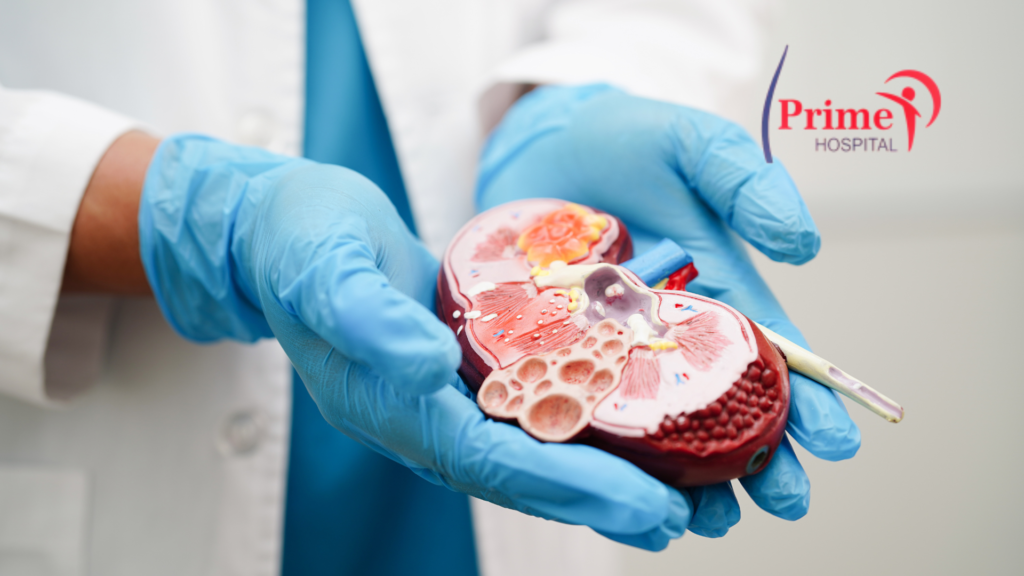Gynecological health is a vital aspect of women’s overall well-being. From hormonal balance to reproductive health, nutrition plays a significant role in maintaining and enhancing gynecological well-being. At Prime Hospital, we understand the intricate connection between nutrition and women’s health, and we are committed to offering the Best Gynecology Treatment in Panipat. Our expert gynecologists emphasize the importance of a balanced diet to support women’s health throughout every stage of life, from puberty to menopause.
Importance of Nutrition in Gynecological Health
Nutrition serves as the foundation of a woman’s overall health, directly impacting her reproductive system, hormone production, and menstrual cycle. A well-balanced diet rich in essential nutrients can help prevent a variety of gynecological issues, including menstrual irregularities, polycystic ovary syndrome (PCOS), premenstrual syndrome (PMS), and even fertility problems.
The body requires specific vitamins, minerals, and nutrients to function correctly. Deficiencies in these nutrients can lead to hormonal imbalances, compromised immune systems, and chronic gynecological disorders. Let’s explore how nutrition influences different aspects of gynecological well-being:
1. Hormonal Balance and Menstrual Health
The menstrual cycle is regulated by hormones, and an imbalance can cause irregular periods, painful menstruation, or even amenorrhea (absence of periods). Nutritional intake has a direct impact on hormone production. For instance:
- Healthy fats, such as omega-3 fatty acids found in fish, nuts, and seeds, are crucial for hormone production and regulation.
- Proteins help stabilize blood sugar levels and reduce the risk of hormonal imbalance.
- Whole grains and complex carbohydrates ensure sustained energy levels and help regulate the menstrual cycle.
A poor diet high in processed foods and sugar can disrupt hormonal balance and exacerbate conditions like PCOS, a common hormonal disorder. Women with PCOS are often advised to follow a low-glycemic index diet rich in whole foods to manage symptoms better. At Prime Hospital, our experts offer dietary guidance as part of the Best Gynecology Treatment in Panipat to help women manage conditions like PCOS effectively.

2. Nutrients for Reproductive Health
For women trying to conceive, nutrition becomes even more crucial. Certain vitamins and minerals are known to enhance fertility and support reproductive health:
- Folic acid, found in leafy greens, beans, and fortified cereals, is essential for preventing birth defects and supporting a healthy pregnancy.
- Iron helps prevent anemia, a common condition among women that can affect ovulation and fertility. It is found in red meat, spinach, and lentils.
- Zinc plays a vital role in egg production and hormone regulation.
- Antioxidants, found in fruits and vegetables, protect the eggs from oxidative stress and improve fertility.
For expecting mothers, nutrition is a critical component of a healthy pregnancy. Consuming a nutrient-rich diet supports fetal development and reduces the risk of complications. Prime Hospital offers the Best Gynecology Treatment in Panipat, where we provide personalized nutritional plans to ensure that women receive the nutrients they need during pregnancy and beyond.
3. Managing Premenstrual Syndrome (PMS)
PMS affects millions of women worldwide, causing symptoms like bloating, mood swings, fatigue, and irritability. Nutrition plays a key role in alleviating these symptoms. Certain nutrients have been shown to reduce PMS severity, including:
- Magnesium: Found in leafy greens, nuts, and seeds, magnesium helps alleviate cramps and improve mood.
- Vitamin B6: This vitamin, found in poultry, fish, and potatoes, helps reduce bloating and breast tenderness.
- Calcium: Research suggests that calcium-rich foods like dairy products and fortified plant milk can help reduce mood swings and other PMS symptoms.
By following a balanced diet rich in these nutrients, women can reduce the impact of PMS and improve their overall quality of life. At Prime Hospital, our gynecologists integrate nutrition as part of the Best Gynecology Treatment in Panipat to help women manage PMS effectively.
4. Menopause and Nutrition
As women age and approach menopause, nutritional needs change. The hormonal fluctuations during menopause can lead to symptoms such as hot flashes, night sweats, and bone loss. A diet tailored to these needs can significantly alleviate menopausal symptoms:
- Calcium and Vitamin D: These nutrients are crucial for maintaining bone health and preventing osteoporosis, a common concern during menopause. Dairy products, fortified plant milk, and leafy greens are excellent sources.
- Phytoestrogens: These plant-based compounds mimic estrogen in the body and can help reduce hot flashes. Soy products, flaxseeds, and legumes are rich in phytoestrogens.
- Omega-3 Fatty Acids: These healthy fats reduce inflammation and support heart health, which becomes more critical after menopause. Fatty fish, flaxseeds, and walnuts are excellent sources.
At Prime Hospital, we understand the challenges women face during menopause and offer the Best Gynecology Treatment in Panipat to support women through this life stage. Our expert team provides tailored nutritional advice to help manage menopausal symptoms naturally.
Conclusion
At Prime Hospital, we prioritize women’s health and believe that nutrition is a vital component of gynecological well-being. Our gynecology department offers comprehensive care, combining medical expertise with personalized nutritional counseling to address each woman’s unique needs. Whether you’re managing hormonal imbalances, dealing with fertility issues, or navigating menopause, we provide the Best Gynecology Treatment in Panipat to support your health journey.
